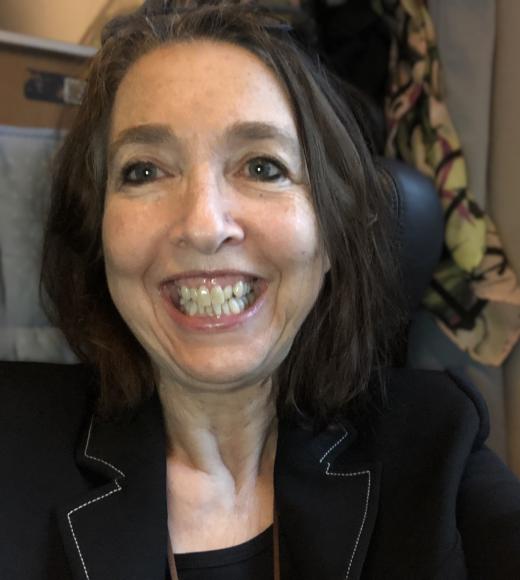
Position Title
Professor
Education
- Ph.D., Cognitive Neuroscience, University of Nijmegen and Max Planck Institute for Psycholinguistics, The Netherlands, 1996
- B.S., Neuropsychology, University of Nijmegen, 1988
About
In addition to her academic appointment in the Department of Psychology, Professor Swaab is a founding core faculty member in the UC Davis Center for Mind and Brain. She is also director of the Cognitive Neuroscience of Language Lab. She was previously a faculty member in Psychology and Neuroscience at Duke University, where she was a founding member of the Duke Center for Cognitive Neuroscience, and she has also been a visiting fellow at the Max Planck Institute for Psycholinguistics, in the Netherlands (2007 & 2016). Professor Swaab has consulted and advised national and international scientific bodies including, the US National Institutes of Health (NIH), the US National Science Foundation (NSF), the German Science Foundation (DFG), the Dutch Research Council (NWO), the UK Economic and Social Research Council (ESRC), and the European Research Council (ERC). She previously served as Editor-in-Chief for Cognition, and as the elected Treasurer of the Society for the Neurobiology of Language (SNL).
Research Focus
Language is a central part of our everyday life. Yet comprehending spoken and written language is extremely complex, being subserved by complex mental processes and supported by myriad areas in the brain. The main goal of Professor Swaab's research program is to study the cognitive and neural architectures of normal language comprehension in monolinguals, bilinguals, and multilinguals. In this context, she has focused her research on a number of topics, including: 1) the processing of sentences and discourse, and 2) the representation of words and their meaning. In order to investigate these topics she has made use of behavioral methods, Event-Related Potentials (ERPs), and functional neuroimaging (fMRI). She has tested neurologically normal adults, neurological patients with brain damage who are impaired in normal language comprehension (aphasic patients), and patients with schizophrenia. The combination of these approaches can provide information on language comprehension processes as they unfold in real time, but also hold the obvious possibility of identifying areas in the brain that are crucial to normal language understanding.
Lab
Cognitive Neuroscience of Language Lab
Publications
- Traxler, M.J. & Swaab, T.Y. (2025). Predictive Processing and Language. In: Andrews, E. & Kiran, S. (Eds.). The Cambridge Handbook of Language and Brain. Cambridge University Press. ISBN:9781009202336
- Trammel, T., Khodayari, N., Luck ,S.J., Traxler, M.J., & Swaab T.Y. (2023). Decoding semantic relatedness and prediction from EEG: A classification method comparison. Neuroimage, 277:120268. doi: 10.1016/j.neuroimage.2023.120268. PMID: 37422278.
- Sendek, K., Corina, D., Cates, D. Traxler, M.J., Swaab, T.Y. (2023). L1 referential features influence pronoun reading in L2 for deaf, ASL-English bilinguals. Bilingualism, Language and Cognition. 6(4):738-750. doi:10.1017/S1366728923000020
- Dave, S., Brothers, T., Hoversten L., Traxler, M.J., & Swaab, T.Y. (2021). Cognitive control mediates age-related changes in flexible anticipatory processing during listening comprehension. Brain Research, 1768:147573, https://doi.org/10.1016/j.brainres.2021.147573
- Brothers, T., Dave, S., Hoversten, L.J., Traxler, M.J. & Swaab, T.Y. (2019). Flexible predictions during listening comprehension: Speaker reliability affects anticipatory processes. Neuropsychologia, 135, 107225, doi: 10.1016/j.neuropsychologia.2019.107225
- Boudewyn, M.A., Blalock, A. Long, D.L. & Swaab, T.Y (2019). Adaptation to animacy violations during listening comprehension. Cognitive, Affective, & Behavioral Neuroscience, 19 (5), 1247-1258, doi: 10.3758/s13415-019-00735-x
- Dave, S., Brothers, T., Traxler, M.J., Henderson, J.M., Ferreira, F. & Swaab, T.Y. (2018). Electrophysiological Evidence for Preserved Primacy of Lexical Prediction in Normative Aging. Neuropsychologia, 117, 135-147, doi: 10.1016/j.neuropsychologia.2018.05.023
Teaching
Professor Swaab teaches in the areas of Perception, Cognition, and Cognitive Neuroscience. She has taught classes in Language & Cognition, Fundamentals of Human Electrophysiology and Cognitive Neuroscience.
Awards
Professor Swaab has received important recognition for her work, including a McDonnell-Pew Postdoctoral Fellowship, a National Science Foundation (NSF) Career Development Award (POWRE), a McDonnell-Pew Individual Investigator Award, and election as a Fellow of the Association for Psychological Science (APS).
